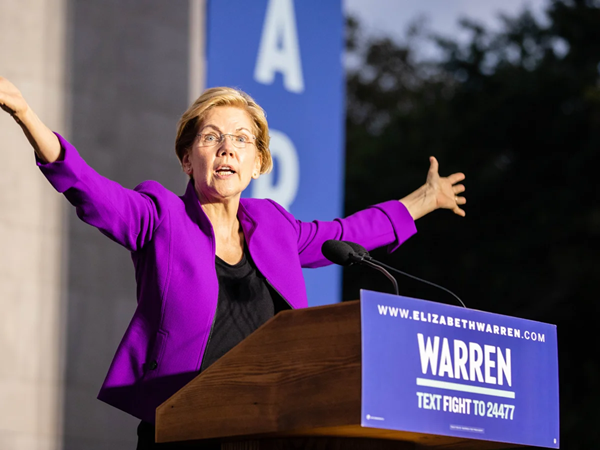Sen. Elizabeth Warren: Trump's $2 Billion Crypto Deal Is 'Shady,' Warns of Corruption Risks from GENIUS Stablecoin Bill

U.S. Senator Elizabeth Warren (D-MA) has once again made headlines for criticizing the $2 billion stablecoin deal between former President Donald Trump's family and a United Arab Emirates (UAE)-based company, calling it a "shady deal" that could pave the way for large-scale corruption if the Senate fails to act.
The deal involves USD1, a new stablecoin issued by World Liberty Financial, a company co-founded by Eric Trump, the former President's son, and crypto investor Zach Witkoff. The coin currently holds the seventh spot on the global stablecoin list with a significant market capitalization, according to data from CoinGecko.
According to Warren, the stablecoin was used as a means of payment in a $2 billion investment by MGX, a UAE company backed by Abu Dhabi’s sovereign wealth fund, in the Binance cryptocurrency exchange. The deal was made public at a cryptocurrency conference in Dubai, where Witkoff appeared alongside Eric Trump.
“This is more than just a financial transaction — it’s a sign that foreign governments are trying to buy influence in the United States through the President’s family,” Warren warned on social media. “The Senate cannot irresponsibly pass a cryptocurrency bill while these transactions are taking place.”
She specifically criticized the GENIUS Act — a Republican-sponsored bill that would create the first regulatory framework in the United States for stablecoins — for lacking safeguards against abuse of power and personal financial gain.
“This bill, if left unaltered, would allow a sitting president to operate his own financial company and directly profit from the issuance of digital currencies — even from investments by hostile nations,” Warren added.
Although the Senate Banking Committee passed the bill in March with bipartisan support, at least nine Democratic senators — including four who had previously sponsored the bill — are now opposing it in its current form. In a joint statement, they expressed concerns about national security risks and a lack of oversight of foreign stablecoin issuers.
Despite the strong opposition, former President Trump denied the allegations in an interview, claiming that he “hasn’t even thought about” profiting from cryptocurrencies. However, he also hinted that if he owned shares in such projects and the value of the assets increased, it would be “natural” to profit.
Warren also noted that she had proposed amendments to the bill that would ban stablecoins from being used in criminal activity and require strict oversight of foreign entities. However, her proposals were all rejected.
“If we don’t fix this bill, every senator needs to vote NO — or risk being complicit in corruption,” Warren warned. “We can’t let future presidents, Trump or anyone else, use the law to enrich themselves under the guise of financial innovation.”
The senator has also criticized other prominent industry figures such as Elon Musk, accusing them of using their political influence to “control your money.” She said she would continue to fight for transparency and fairness in the US digital financial ecosystem.
